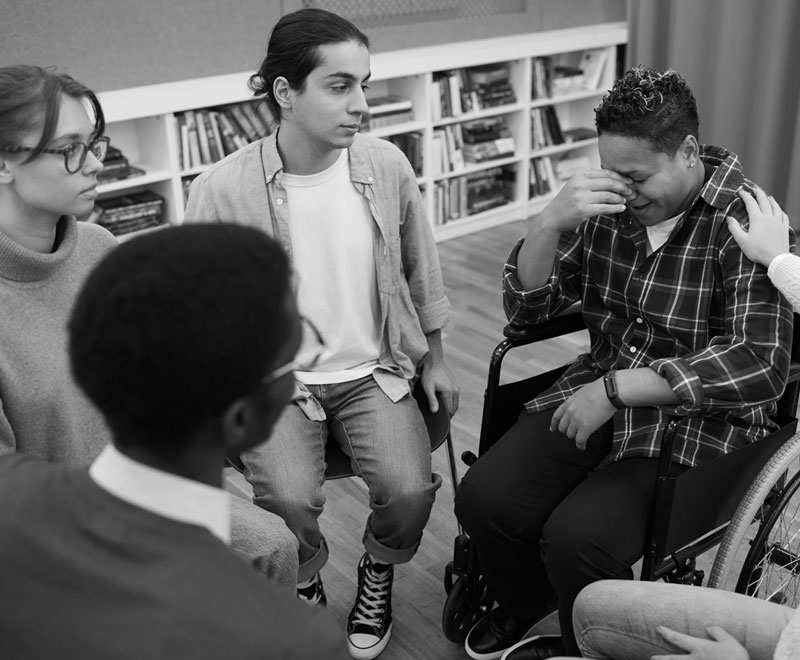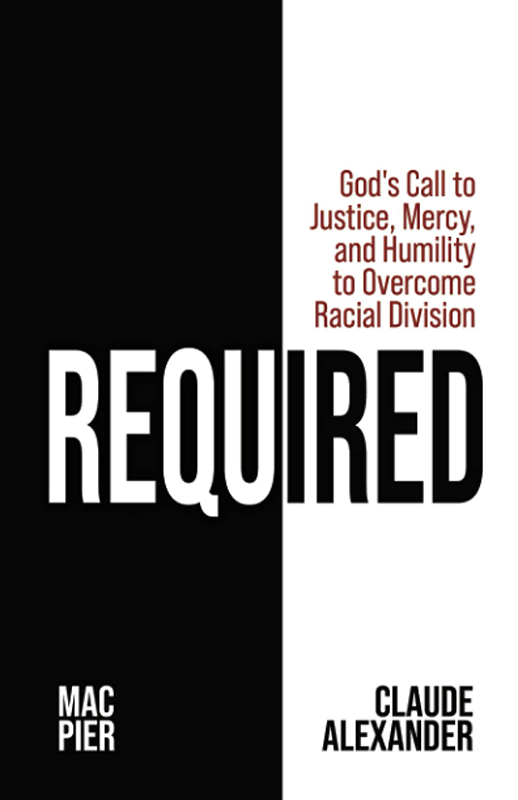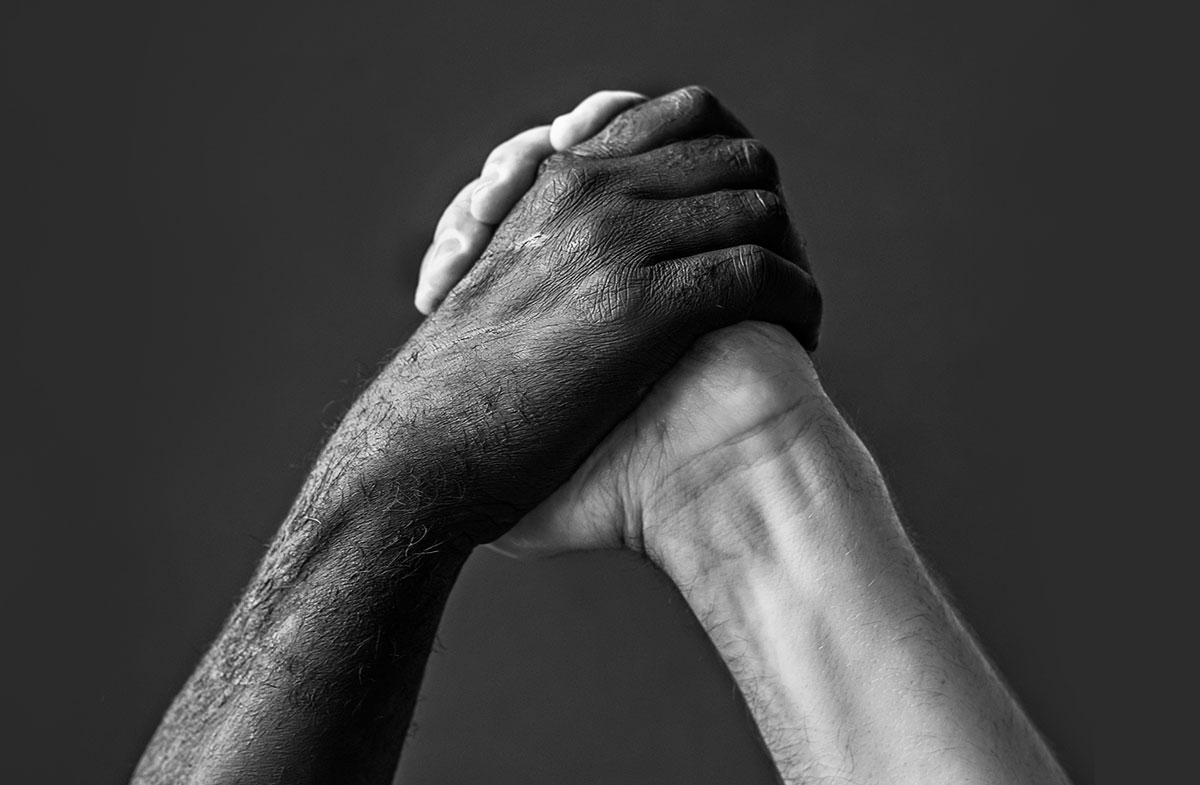How our conversations on race can be rooted in our calling to justice, mercy, and humility.
Every person has a racial story. Have you ever taken time to reflect on your unique racial story and how God is using that story to involve you with His Great Story—in which He is reconciling the world to Himself and to one another?
Though our racial stories have always been part of who we are and how we relate to others, the scale of unrest, division, and hardship in the world today makes the conversation on race an urgent and significant one. The church of Jesus Christ is required to work at a level of unity as never experienced before to make a redemptive difference in the world.
This requires an enormous amount of intention on the part of leaders from all racial backgrounds. And not just political leaders or community activists. God is calling church leaders and Christian influencers—us—to speak into these situations. We have tremendous opportunity to lend a hand to those who need it, as Jesus Himself said He came to do (see Isaiah 61:1–3). And as His followers, He expects the same of us.
The truth is that stereotyping others becomes the enemy of conversation. Every solution must begin with a conversation. And as politics has become more divisive, with character bashing and name calling, we shut down conversations before we even get them started.
We must wrestle with nuance. As Christ followers we are called to be different—to work hard to start and maintain conversations and to work together toward solutions. Our conversations must be civil, empathetic, and pragmatic. We may not agree on every point, but we must be able to thoughtfully and respectfully state the positions of those with whom we disagree. This creates empathy even in the midst of disagreement.
So What Is Required of Us?
In Micah 6:8, the prophet writes, ‘He has shown you, O mortal, what is good. And what does the Lord require of you? To act justly and to love mercy and to walk humbly with your God.’ God is requiring of us a commitment to justice, mercy, and humility.
Face it, at some point in his or her vocation, every pastor has preached on this passage. We have memorized it. We have heard the passage taught in many contexts. The danger is that the verse is so familiar, it can become unfamiliar. But let’s slow down for a while and really spend time thinking about these three words and what they mean.

 Humility
Humility
Let’s start with humility. Humility is recognizing who I am before God. That causes me to then present myself no less than I am and no more than I am. It is this constant awareness that, before God, I am limited, imperfect, and needy. The ability to recognize this reality in myself should move me to recognize that in others as well, and therefore, I can treat them by giving them grace, the way in which I receive grace.
Walking humbly before God or with God is about trusting Him—both in terms of the action that we are to take and the outcome. Ultimately, humility is the ability to trust God’s direction for us and then to act upon that faith and trust in long-term ways that honor and please Him.
In addition, we can think about humility horizontally. I think of the first hymn of the early church from Philippians 2, which draws the relationship between humility and humiliation:
Do nothing out of selfish ambition or vain conceit. Rather, in humility value others above yourselves, not looking to your own interests but each of you to the interests of the others.
In your relationships with one another, have the same mindset as Christ Jesus:
Who, being in very nature God, did not consider equality with God something to be used to his own advantage; rather, he made himself nothing by taking the very nature of a servant, being made in human likeness. And being found in appearance as a man, he humbled himself by becoming obedient to death—even death on a cross!
Therefore God exalted him to the highest place and gave him the name that is above every name, that at the name of Jesus every knee should bow, in heaven and on earth and under the earth, and every tongue acknowledge that Jesus Christ is Lord, to the glory of God the Father. (Philippians 2:3–11)
In humility we become surrendered, almost enslaved, to the needs of others. That is the posture Jesus took toward us. He was humiliated by His death on the cross. He was enslaved to our spiritual and relational need to be reconciled to God and to others.
This is the posture God invites us into. We demonstrate humility when we become enslaved to the needs of others. We see the imago Dei—the image of God—in the other person, especially when the other person is different.

 Mercy
Mercy
On the topic of mercy: mercy is a loyal covenant love and faithfulness. It also gives this notion of feeling what the other is feeling. It is being able to get into the skin of another person and being able to see what they see, hear what they hear, and feel what they feel. Those two things together—the faithfulness in relationship and this ability to feel—in mercy, those things come together.
In Lamentations, when Jeremiah says, ‘It is of the Lord’s mercy that we are not consumed, because his compassions fail not. . . . Great is thy faithfulness’ (3:22–23), these three things are tied together. It is the Lord’s mercy. It is His faithful love, His covenant loyalty, and His compassion. That word compassion means ‘wounded womb’. These are the things to which God calls us, wrapped up in that term ‘loving mercy’.
Mercy is proactive kindness. It is not just sentimental, it is intentional. We have to stress the difference between sentiment and intention. We can feel sorry for people (sentiment). But mercy does something about it (intention).
The book of Ruth is centered on this theme of kindness. Ruth was merciful toward her mother-in-law, Naomi, as demonstrated in leaving her family to journey back to Bethlehem. She worked in the fields by hand to provide for them. Finally, she followed Naomi’s direction to find a mate in Boaz, which resulted in a son as part of the messianic lineage. God always uses mercy as a way to unveil his redemptive character.

 Justice
Justice
Then as we consider justice, we look at what each person has the right to expect under the law. What is due each person under the law, and the equal experience of that expectation. There are two aspects of justice. One is establishing what is right. The other is the notion of vindication.
Justice is about making right what is wrong, what is unfair. It is correcting an imbalance. We can find justice throughout the Old Testament, beginning with the Law and continuing through Psalms, Proverbs, and the Prophets. God had standards of conduct for His people that would be just and that would mirror His conduct. That call to justice is particularly strong in Isaiah with six references. It is included in the great messianic prophesy of Isaiah 9: ‘Of the greatness of his government and peace there will be no end. He will reign on David’s throne and over his kingdom, establishing and upholding it with justice and righteousness from that time on and forever. The zeal of the Lord Almighty will accomplish this’ (v. 7). The New Testament presumes and builds upon the Old Testament’s posture, demands, and expectations.
If you are looking for the words ‘social justice’ throughout these pages, please know that when we speak of justice, it includes the societal aspects. Study of the Scriptures reveals that God’s standard of justice needed no qualifying adjective, because it was understood to be both individual and institutional.

Required: God’s Call to Justice, Mercy, and Humility to Overcome Racial Division by Mac Pier and Claude Alexander
Our Challenge to You
It is time for us to step up and do that which God requires of us. To that end, we offer our book, Required: God’s Call to Justice, Mercy, and Humility to Overcome Racial Division. As you read, we hope you will feel empowered to pursue that call. We hope that you will have an epiphany regarding the character of God and the commands of God on your life and on the lives God puts in your path to influence.
As you work your way through this book, we present a challenge to you—a two-part assignment, if you will. The first part is to focus on your own personal transformation. Be open to learning things about yourself that you did not previously know. Claude and I have learned a great deal about each other and ourselves as we have worked together on this book. What you learn will give you more context to the discussion on justice, humility, and mercy.
The second part of your assignment has to do with how you interact in your city. We are dual citizens: we have citizenship in the kingdom of God, and we are also citizens of the cities where God has planted us. Focus on what is happening in your city and how you can use your agency to make a difference.
Many conversations regarding race, especially recently, have not been a matter of what; they have become a matter of how. Our prayer is that this book can provide one of the answers to the how.
Editor’s Note: This article is adapted from Bishop Claude Alexander and Mac Pier’s recently published book, Required: God’s Call to Justice, Mercy, and Humility to Overcome Racial Division. Purchase your copy today.
